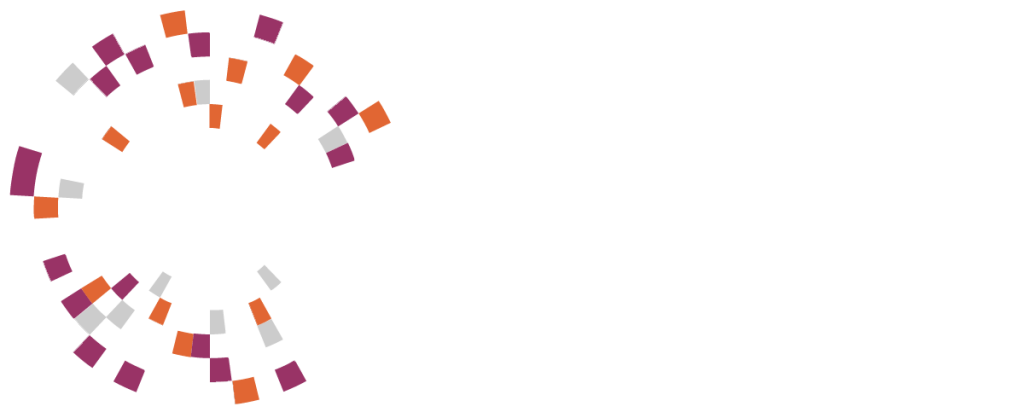In qualitative research and analysis, in-depth interviews are fundamental in acquiring profound insights and facilitating a comprehensive understanding of participants’ thoughts, experiences, and perspectives, transcending surface-level data.
This blog post accentuates the indispensable role of in-depth interviews in B2B qualitative research. It delves into the steps for conducting these interviews, underscores their significance in unveiling nuanced insights, and provides guidance on executing them confidently.
By delving into the intricacies of in-depth interviews, you can cultivate a richer comprehension of their impact on research and analysis for your brand, service, or products. This understanding empowers you to make confident and data-driven decisions.
What is an In-Depth Interview?
In Business-to-Business (B2B) research, in-depth interviews emerge as a highly effective approach for acquiring in-depth insights and cultivating a profound understanding of the intricacies within corporate environments. This qualitative research method involves direct, face-to-face interactions between a skilled interviewer and critical decision-makers or a relevant stakeholder within a business entity.
B2B in-depth interviews delve deeply into the participant’s perspectives, experiences, and decision-making processes. Thoughtfully crafted questions elicit comprehensive and detailed responses, enabling researchers to unearth valuable insights that quantitative methods may not capture.
The process commences with careful planning, where researchers create a detailed interview guide aligned with the specific objectives of the research study. Decision-makers with extensive industry knowledge are selected, ensuring that the insights gathered are comprehensive and pertinent to the B2B context.
The interviewer employs active listening and probing techniques to encourage participants to divulge intricate details about their challenges, preferences, and decision criteria. This personalized approach establishes rapport, creating an open and honest communication environment.
Within the B2B landscape, in-depth interviews play a pivotal role in understanding complex business relationships, uncovering market trends, and gaining insights into the factors influencing strategic decisions. Whether it involves exploring the adoption of new technologies, assessing customer satisfaction, or scrutinizing industry challenges, this method empowers researchers to transcend superficial data and grasp the intricate factors shaping the B2B landscape.
In the B2B context, in-depth interviews function as a strategic compass, guiding businesses toward well-informed decision-making by uncovering powerful insights.
Why are in-depth interviews Conducted?
The in-depth interviews play a pivotal role for diverse reasons, with their prevalence notably pronounced in qualitative research. The following are the purposes behind conducting in-depth interviews:
Exploration of Complex Phenomena
In-depth interviews prove invaluable when researchers aim to explore and understand complex phenomena comprehensively. This method facilitates a meticulous examination of multifaceted topics that may elude complete capture through quantitative approaches.
Rich Insight Generation
The primary objective of in-depth interviews is to generate rich and detailed insights. Through one-on-one conversations, researchers delve into nuanced perspectives, experiences, and emotions, thereby fostering a deeper understanding of the subject under investigation.
Understanding Individual Perspectives
Particularly useful for gaining insights into individual perspectives, beliefs, and attitudes, these interviews leverage open-ended questions, enabling participants to express themselves freely. This approach enhances the comprehensive understanding of their viewpoints.
Exploration of Sensitive Topics
In cases involving sensitive topics or personal experiences, in-depth interviews provide a confidential and supportive environment by letting the participants openly share their thoughts, which enables the researchers to navigate delicate subjects.
Uncovering Unseen or Unheard Insights
The in-depth interviews uncover hidden insights and capitalize on the personalized nature of interactions. The participants share information that might escape capture through surveys or other more structured research methods.
Program or Product Development
Businesses utilize in-depth interviews to shape program or product development strategies by engaging with key stakeholders, decision-makers, or potential users and gathering feedback around their product’s design, features, and functionalities.
Evaluation of Services or Interventions
Widely employed for evaluating the effectiveness of services or interventions, in-depth interviews allow researchers to explore participants’; experiences and perceptions, which aids in assessing the impact of various programs or initiatives.
Building Trust and Rapport
The personal and interactive nature of in-depth interviews contributes to building trust and rapport between the interviewer and the participant. This trust is indispensable for obtaining honest and insightful responses.
Contextual Understanding
In-depth interviews provide a contextual understanding of the subject matter. By delving into the context surrounding participants’ experiences, researchers can better grasp the influences and factors at play.
Theory Development
In academic research, in-depth interviews are instrumental in theory development. The detailed narratives collected contribute to building or refining theoretical frameworks, advancing understanding in specific fields.
Overall, in-depth interviews present a flexible and potent method for researchers and practitioners to gain a deep and holistic understanding of a broad spectrum of topics and phenomena.
Steps to Conduct In-Depth Interviews: A Comprehensive Guide
Executing in-depth qualitative interviews is a thoughtful and strategic process essential for uncovering valuable insights. This comprehensive guide delineates the deliberate steps to conduct impactful, in-depth interviews with confidence:
Define Clear Objectives
Begin by clearly articulating your research objectives. Define the specific insights you aim to glean through in-depth interviews. This foundational step sets the tone for the entire process.
Design a Robust Interview Guide
Craft a detailed and adaptable interview guide aligned with your research objectives. Formulate open-ended questions that prompt participants to share comprehensive and candid responses.
Select Participants Strategically
Identify participants based on their relevance to your research goals. Consider engaging key decision-makers, stakeholders, or individuals with profound knowledge to ensure a thorough understanding.
Establish Rapport
Build a genuine rapport with participants to foster a comfortable and open environment. Establishing trust is critical for evoking authentic and insightful responses.
Conduct Pilot Interviews
Conduct pilot interviews before the primary interviews to fine-tune the interview guide and ensure clarity. This practice helps identify potential issues and enhances the overall quality of subsequent interviews.
Choose an Appropriate Setting
Select a conducive and private interview setting to minimize distractions or use online video consultations (Zoom, MS Teams, or any other platform). The environment should facilitate focused and confidential conversations.
Active Listening and Probing
Practice active listening during interviews. Utilize probing techniques to encourage participants to elaborate on their responses, unearthing deeper insights.
Record and Transcribe
The video or in-person (face-to-face) consultations or interviews are recorded (with participant consent) and transcribed accurately, ensuring proper documentation of all critical insights for thorough analysis later.
Thematic Analysis
Analysis of the interview transcripts thematically to identify patterns, recurring themes, and critical insights aligned with the research objective.
Ensure Ethical Considerations
Obtain informed consent, prioritize confidentiality, and uphold participants' rights to ensure that the research adheres to ethical standards.
Iterative Process
The in-depth qualitative interviews often entail an iterative process, and it is essential to refine the approach based on the initial findings.
Document and Report Findings
Comprehensively document and present the findings clearly and coherently, providing contextual insights and actionable recommendations derived from your research.
By meticulously adhering to these confident steps, researchers can unlock the full potential of in-depth interviews, extracting valuable insights that significantly contribute to a deeper understanding of the subject matter.
The Impact of Qualitative In-Depth Interviewing in B2B Scenarios
In Business-to-Business (B2B) research, the strategic implementation of qualitative in-depth interviewing emerges as an essential methodology that profoundly impacts insights and decision-making. This sophisticated approach transcends surface-level analyses, plunging deep into the intricacies of B2B scenarios exerting influence across various dimensions.
Comprehensive Understanding
Qualitative in-depth interviews serve as a cornerstone for gaining a comprehensive understanding of the B2B environment. Through candid one-on-one engagements with key decision-makers and stakeholders, researchers attain nuanced insights into complex business relationships, market trends, and the factors steering strategic decisions.
Strategic Decision-Making
The impact seamlessly extends to strategic decision-making within B2B enterprises. In-depth interviews facilitate the exploration of specific challenges, preferences, and decision criteria, empowering businesses to refine their approaches, enhance services, and adapt strategies based on authentic and detailed feedback.
Uncovering Unseen Factors
This method excels at uncovering unseen factors that influence B2B dynamics. The personalized nature of interviews encourages participants to share information that might not surface through conventional surveys, shedding light on subtle nuances crucial for informed decision-making.
Informed Program Development
Qualitative in-depth interviews are essential in informing program development within the B2B context. By eliciting feedback from key players, decision-makers, and industry experts, businesses can tailor their programs to align with the ever-evolving needs of the market.
Uncovering Market Trends
Qualitative in-depth interviews are powerful for revealing market trends obscured in quantitative analyses. In-depth interviews enable researchers to identify emerging patterns, shifts, and subtle indicators contributing to a comprehensive understanding of the market landscape.
Mitigating Industry Challenges
Qualitative in-depth interviewing is a proactive approach that addresses the unique challenges within B2B sectors, uncovering nuanced insights that aid in formulating targeted strategies for overcoming challenges.
Enhanced Customer Understanding
Understanding the B2B customer transcends statistical data, and qualitative in-depth interviews excel in this domain by capturing the intricacies of customer preferences, challenges, and expectations so businesses can tailor their offerings to meet the client’s demands.
Adaptability to Complex Topics
In the complex B2B context, qualitative in-depth interviews offer a tailored and adaptable approach that helps researchers delve into intricate details, explore multifaceted challenges, and capture the depth of individual perspectives, contributing to a holistic understanding of the business landscape.
Informing Innovation and Evolution
Instrumental in informing innovation and the evolution of B2B strategies, the in-depth interviews align offerings with market demands, ensuring businesses stay agile and responsive in a rapidly changing environment.
Guiding Future Initiatives
The insights from qualitative in-depth interviews serve as a guiding compass for future initiatives. Whether involving technology adoption, customer satisfaction assessments, or navigating industry challenges, the depth of understanding gained equips organizations to make strategic decisions resonating with the intricacies of the B2B landscape.
The impact of qualitative in-depth interviewing in the B2B scenario is its ability to provide a granular and contextual understanding. It transcends the transactional and delves into the relational aspects, empowering businesses with the depth of insights necessary for strategic excellence in the dynamic B2B landscape.
The Role of Follow-Up Questions in Qualitative in-depth interviews
The follow-up questions are integral to the success of qualitative, in-depth interviews, enhancing the depth and quality of responses. Here’s why they are crucial:
Clarification and Elaboration
Follow-up questions allow researchers to seek clarification and expand on participants’ initial responses. This approach ensures that researchers capture the subtleties and nuances integral to the participant’s viewpoint, enriching the interpretation with a more robust and accurate understanding.
Uncovering Underlying Motivations
Confidently presented follow-up questions delve beneath the surface, aiming to unveil the motivations and are critical in uncovering the driving forces behind participants’ perspectives and decisions.
Encouraging Reflection
Thoughtfully crafted follow-up questions motivate participants to reflect more deeply on their experiences or opinions, resulting in more profound, detailed responses revealing valuable insights that may remain undiscovered without intentional probing.
Navigating Complexity
In the qualitative landscape, where topics can be inherently complex, follow-up questions empower researchers to navigate intricate details, ensuring a thorough exploration of multifaceted challenges or situations that may arise during the interview.
Deepening Contextual Understanding
The follow-up questions deepen the contextual understanding of the participant’s narrative by exploring specific details or probing for contextual information. The researchers use these narratives to paint a more vivid and accurate picture of the participant’s experiences, adding depth to the qualitative data.
The use of offline or online in-depth interviews with the correct use of the follow-up questions offers a nuanced and detailed understanding that other research methodologies fall short of achieving.
About Liquid Sample
With more than thirteen years of experience in the industry, Liquid Sample offers tailored mixed-mode research approaches to achieve its client’s research objectives.
Drawing on first-party databases and extensive expertise in custom-recruiting niche B2B audiences, the company is pivotal in supporting qualitative research, ranging from in-depth interviews (online in-depth interviewing, telephonic in-depth interviewing, or in-person interviewing) and online focus groups.
Key Strengths
Holistic Methodologies
Liquid Sample seamlessly integrates comprehensive research approaches for in-depth interviews, fostering a holistic and interconnected approach to research.
Varied Research Approaches
Liquid Sample offers mixed-mode qualitative research approaches that include in-person interviews, online in-depth interviews, online focus groups, and telephone in-depth interviews.
Quality Assurance
Emphasizing rigorous quality control measures, Liquid Sample ensures that data collected from in-depth interviews maintains high standards and reliability.
Client-Centric Approach
Liquid Sample takes a client-centric approach, ensuring in-depth interviews meet research objectives and deliver insights aligned with business goals.
In summary, Liquid Sample’s wealth of experience, unwavering commitment to quality, and innovative qualitative approaches position it as a valuable partner for qualitative research, primarily focused on in-depth interviewing and expert interviews.
Conclusion
In-depth qualitative interviews are a powerful medium for unlocking pivotal insights, endowing clients with the clarity and depth essential for making well-informed decisions.


















